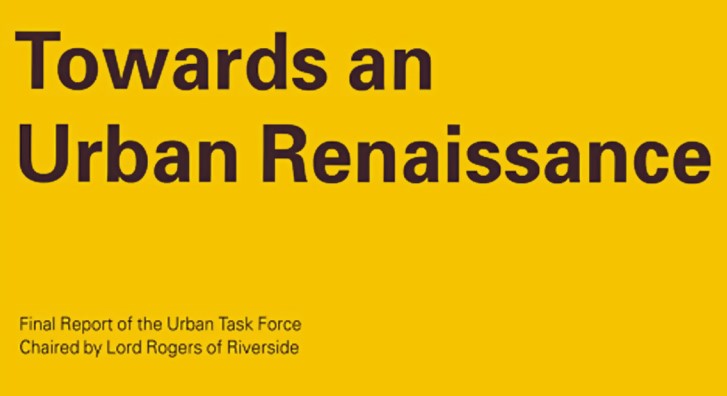John Prescott – a prophet without honour
Most, if not all, senior politicians fulfil the old quip about every political career ending in failure. John Prescott, who died last week was unfortunately no exception.
Much ink has been spilled since he died on his remarkable, bumpy and loud political career. But no-one really seems to have celebrated his valiant four-year attempt to point the nation’s planning and transport policies in a much more sustainable direction.
When New Labour took office in 1997, Prescott was seen as the guardian of old Labour values, the senior minister who would stand up to Tony Blair’s centre-right instincts and Gordon Brown’s monetarism. For the most part, such dreams were disappointed.
Yet New Labour’s first four-year term had generated something remarkable. Prescott was given charge of a new Department of the Environment, Transport and the Regions, bringing together for the first time the key ministries covering the environment, transport and planning. Environmentalists had wanted this for years and petrolheads and sprawl enthusiasts in Whitehall were appalled.
Prescott set to work with characteristic vigour. An Urban Task Force chaired by Richard Rogers was assembled and submitted a ground-breaking report which, among other radical things, advocated breaking up less ground. It said action was needed to make towns and cities work sustainably, maximizing benefits from urban assets and investment and policies to sustain such benefits.

Its 100+ recommendations shocked commercial interests with things like effective brownfield policies, recycling existing buildings and devoting 65% of transport public expenditure to public transport and active travel. It even shocked the melting little flowers in the development industry by proposing deletion of non-policy compliant local plan allocations for greenfield land.
The Task Force’s report led to an urban white paper, complemented by rural and transport white papers and actual policies followed.
Suddenly the Government was giving real teeth to a weak brownfield-first policy inherited from the Conservatives. Minimum residential densities were imposed, “people-based regeneration” targeted the poorest areas and, for the first time, an “urban renaissance” proposed an alternative to 80 years of garden-city movement inspired sprawl.
On transport, new policies questioning the benefits of road building and proposing integration of transport with environmental and planning policies began to be actually implemented. The white paper proposed starting one new light-rail system every year and cities across the land began preparing schemes.
And yet, a quarter of a century later, we’re still struggling to realise most or all of these benefits and a new Labour government is a million miles away from the early policies of New Labour.
It all fell apart in a couple of days.
The 2001 election was deadly dull apart from an incident in Rhyl when a large bloke with a mullet haircut chucked an egg at Prescott. The former amateur boxer replied with a punch and the two had to be separated. It might have ended many political careers, but even Tony Blair just shrugged and said: “Oh, that’s just John.”
Post-election, Prescott had expected Jack Straw to take over his super-ministry but, to his and everyone’s surprise, Blair’s bungling attempts to reshuffle the Cabinet made Straw foreign secretary and broke up DETR, giving environment to Fisheries and Food where it still languishes and, eventually, hiving off transport back to the petrolheads.
Prescott didn’t fight it, but accepted that his role in the remainder of Tony Blair’s six years as PM would be spent in a grim rearguard action to prevent Blair and Gordon Brown squabbling in public while the latter’s ever more mighty Treasury took control of domestic policy and crushed sustainable development policies. Instead, there were “reviews” pretending urban sprawl and erosion of the planning system would improve the national economy.
John Prescott continued as deputy prime minister, but it didn’t amount to much. There was a failed attempt to launch a desperately needed elected regional assembly in North East England and its failure killed the whole idea. There was a scandal and public ridicule. He left Parliament in 2010 and made an unsuccessful attempt to be elected as a crime commissioner.
Those of us who saw Prescott speak in the early days of New Labour marvelled that he ever became a politician, such was his halting delivery. But the boxer’s sheer pugnaciousness saw him through.
If he leaves a legacy, it should be the remarkable policies he pioneered between 1997 and 2001. Angela Rayner is sometimes compared unfavourably to Prescott and that’s certainly evident in her feeble surrender to developer interests over planning policy at a time sustainable policies are so desperately needed today.
Like all political careers, Prescott’s certainly ended in failure. But environmentalists need to dust off the work done by DETR and get behind resilience planning. For a short while at least, John Prescott certainly led the way.
Jon Reeds
 Jon Reeds
Jon Reeds
 Nigel Pearce
Nigel Pearce